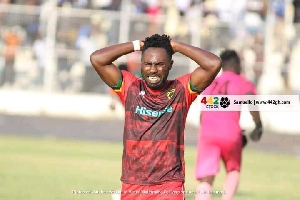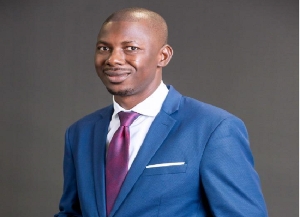Opinions of Friday, 10 February 2012
Columnist: Fosu, George Awuah
Changing Psychological Care in Ghana: US Model
The common belief that therapy or counselling is only meant for people with behaviour problems are wrong. Research has shown that those with the most serious behaviour problems experience the greatest challenges in therapeutic sessions. Therapy is actually most effective in helping relatively healthy people improve their quality of life, reach personal goals and enhance the quality of their relationships.
There are many specific types of psychotherapy, each with its own approach to improving personal wellness. Typical conditions and problems that benefit from psychotherapy include, anger management (domestic violence), marriage and relationship problems, depression, mood disorder (mood swing), anxiety (panic attack), severe shyness as well as drug and alcohol addiction.
In Ghana according to the Chief Psychiatric Officer, it is estimated that 40% of the population of over 24 million people are affected by a moderate to mild mental disorder. Most of these people are likely to get the quickest results from therapy, yet the behavioural service gap is 98%. Which means only 2% of those in need is currently receiving any sort of treatment.
People with severe addictions and behavioural problems are even less likely to receive treatment for their conditions. Addiction to alcohol or any other drug is a disease and cannot be dismissed as moral weakness as is often the case. Addictions, therefore, need treatment just as any other diseases such as diabetes, coronary heart disease or thyroid disease. Multiple studies have shown that 50 - 60% risk of addiction is linked to genetics, which means individual’s who abuse drug or alcohol have inherited genes that predisposed them to more readily become addicts.
Heavy alcohol or drug use affects nearly every body organ and vital system as well as every aspect of a person’s personal and professional life. The result is not only a lower quality of life, but a shorter life expectancy which has direct impact on a country’s mortality rate. It cannot be overstated how much alcohol and drug use impact social and psychological problems including, family conflicts, financial stress, arrests, job instability, domestic violence, injuries from accidents, and psychological symptoms such as depression and anxiety which often lead to suicidal and homicidal deaths.
In his scholarly contributions addressing drug and alcohol problems in Ghana, former Drug Czar Dr. Asare argues that since there are no adequate detox programs (a process of flushing the body of drug or alcohol) and no long-term treatment facilities where habitual drug users can receive psychological care and meet their social needs, they continue to use drugs and alcohol even if they manage to stop for a period of time. He further explained that the stigma attached to people visiting the existing psychiatric hospitals, Patang, Accra Psychiatric and others prevents many people especially professionals and college students with drug and alcohol related problems from seeking medical attention for their addictions and behavioural health problems.
PEEP-TERS EXTENSION INSTITUTEHERAPY The Peep-Ters Extension Institute sets a new precedent and has established a foundation for widespread quality behavioural healthcare and addiction recovery (rehab) in Ghana. The first institute is strategically located in Akrade, Akosombo (Ghana Vatican City) in the Eastern Region, only half an hour drives to the Volta Region or an hour to Accra, Ghana’s capital city. The Peep-Ters Extension Institute is a joint project of Martha Educational Foundation non for profit organization and The Extension (USA). The addiction treatment program is based on The Extension’s over 25 years successful model; they provide professional training and supervision. The Institute set-up encourages freedom of interaction between providers and clients, by providing a residential homelike environment in a serene atmosphere that promotes successful recovery. Addiction is treated from a holistic approach, where individual’s physiological, emotional and spiritual needs are addressed and met. Family members impacted by their loved one’s addiction; co-dependent, may also receive counselling and other service.
Peep-Ters Extension's programs include alcohol detoxification, 3 to 6 months rehabilitation, Alcoholic Anonymous (AA) 12 step meetings, anger management (domestic violence), depression and anxiety treatment. The convenient, yet private location of Peep-Ters Extension reduces stigma and discrimination and, therefore, encourages professionals, students and everyday individuals to take the first important step to deal with their psychological health. After rehabilitation, clients may return to their families or be matched with a halfway house; The Oxford house of the Hopeful Way Foundation, where protective environment is maintained for recovering addicts who continue to support each other in recovery. Additional efforts will be made to match recovering clients with employment agencies to help promote social- economic growth.
The director of services of the Peep-Ters Extension Institute is Jennifer Peprah, a Clinical Psychologist, a product of Wesley Girls High School and The University of Ghana Legon Graduate School. Peep-Ters Extension also boasts the services of Dr. Fred Siaw, medical doctor, George Mends, drug counsellor/case worker and Ebenezer Abekah, Christian counsellor. Dr. Eugene Dordoye, who has studied both in Ghana and at Johns Hopkins University in the United States, serves as both Psychiatrist and Medical Director.
Peep-Ters Extension, in just a few months of operation, has already achieved commendable results. Family testimonies provide the most satisfying evidence: “My brother looks like he has been born again I’m looking forward in having a better relationship with him now.” More testimony, “I thought he was going to die. I can”t believe they have help him turned his life around I’m graceful”. Although the journey is challenging, testimonies like these remind everyone how important it is to continue helping in developing this Institute.
In addition to a full spectrum of therapy services for anger management, depression, stress, anxiety, domestic abuse and other debilitating conditions, Peep-ters Extension recognizes alcohol and drug addiction as a disease that requires treatment with support, not judgement. Understanding addiction as a disease and with knowledge of credible services available in Ghana, family members, pastors, friends, mentors and bystanders should feel comfortable, perhaps even obligated, to recommend treatment for their loved ones.
For more information visit MEF at www.marthaedu.org. The Extension at www.theextension.org. The Oxford House at www.hopefullway.org.
Send enquires to Martha Educational Foundation, USA Liaison/Program Director, Jim DeLaMater at: jimd@marthaedu.org.
By: George Awuah Fosu, Chairman and Coordinator of Peep-Ters Extension, Member of the Atlanta Group Psychotherapy Society. Contact directly at: marthaedu@bellsouth.org.












